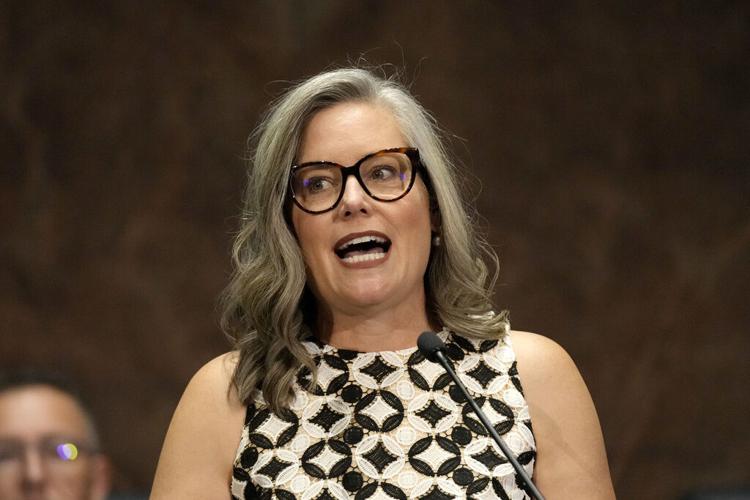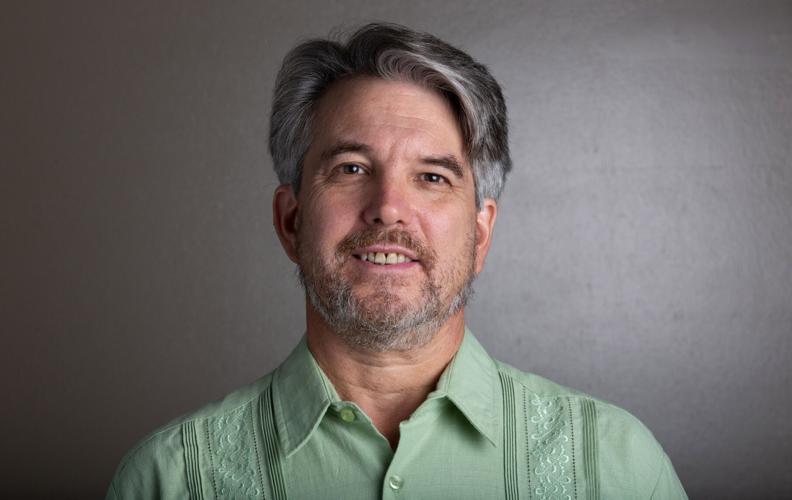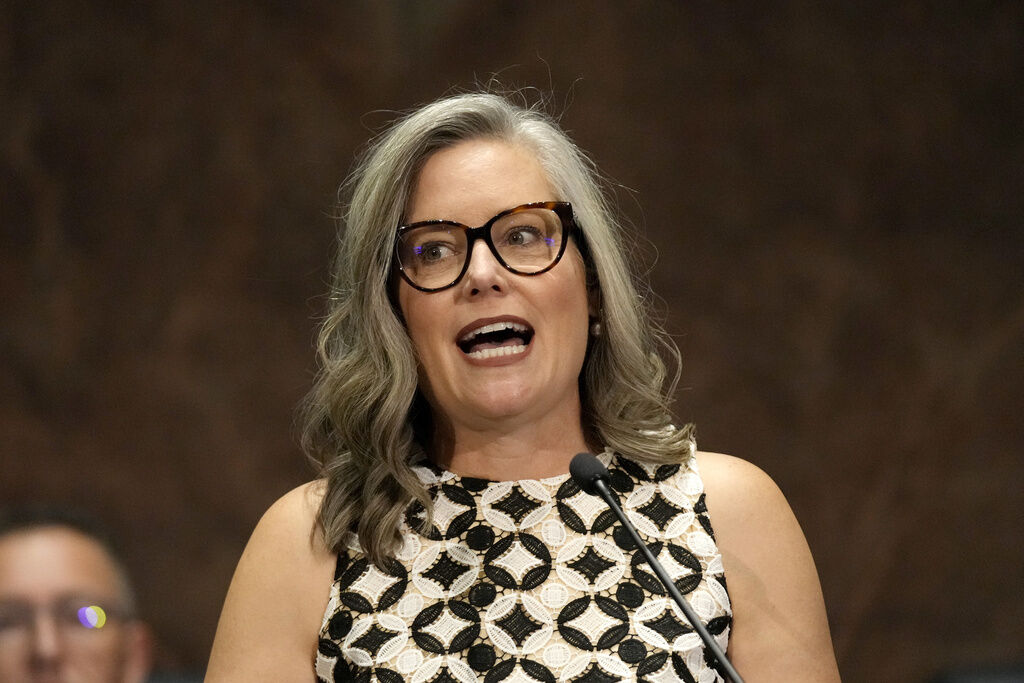Thursday morning, the University of Arizona’s course-correction seemed on track.
At an Arizona Board of Regents meeting in Tempe, board chair Fred DuVal and the new man overseeing UA finances, John Arnold, reassured the public about the university’s financial position.
There’s no money missing and never was, they noted. The university is $700 million in the black. It’s simply on an unsustainable spending trajectory that would be a threat if they don’t fix it.
“We need to change that cost trajectory, but we have time to do it,” Arnold said.
That reassuring message was effective for the moment. At times the UA’s financial troubles have seemed overblown.
Then came Thursday evening, and Gov. Katie Hobbs blew up the whole plan. She sent a scathing letter telling the regents, essentially, that she doesn’t believe in them or their process for correcting the UA’s course.
She demanded that an independent third-party come in to find the problems that led to an unexpected drop in cash on hand, and lay out the solutions.
Hobbs framed her criticisms awkwardly, I thought. Citing a new report by The Arizona Republic, she treated the hotly debated, 2020 purchase of the online Ashford University as if it were a new controversy, not something hashed out heatedly and in public 3 1/2 years ago.
It’s unclear to me why that story would raise new concerns for the governor unless she had missed the Ashford controversy up to now.
But some of the points she made were surprising and good. She questioned, for example, what role the regents can be trusted to take in solving UA financial problems they may have helped create.
More pointedly, she said, “The plan ahead must be implemented with purpose and fidelity. If we do not see progress, I will work with stakeholders to identify further changes to leadership and process in order to fix ongoing problems.”
With that, Hobbs breathed life into a question that has been lurking in the background, and that many powerful donors would just as soon squelch: Will Dr. Robert Robbins keep his job as UA president?
Accountability
As to Robbins, the big question is whether he should be held accountable for the over-spending that put the UA in a delicate position, leading to hiring freezes and other austerity measures. Or should he be holding others accountable for it?
He’s tried to do the latter. He announced the departure of former Chief Financial Officer Lisa Rulney, only for it to be revealed that she had continued in a related role at the UA at her same high pay.
Then, last week, Robbins unexpectedly fired Athletic Director Dave Heeke. It seemed a decisive move, and it was rumored to be a consequence for poor financial performance.
But then, as the week wore on, UA officials argued that this wasn’t actually a firing. And in fact, they acknowledged he would be paid out the remaining million dollars on his contract, which lasts into 2025.
So, this wasn’t a firing for cause. It was just another costly goodbye, like the many dismissals of football and basketball coaches before.
Truth be told, it’s unclear why Robbins dismissed Heeke at all. As my colleague Greg Hansen spelled out Thursday, it looks like Heeke has been made a fall guy — but for what exactly?
Up to now, nobody in power has said it was for his role in causing the university’s financial problems. In fact, Arnold emphasized Thursday that of the $140 million drop in cash on hand that happened last year, intercollegiate athletics accounted for $35 million of that.
So while Robbins’ efforts at accountability deserve notice, neither of them has played out as a clear, unequivocal consequence for performance failures. And meanwhile Robbins hasn’t faced any noticeable accountability at all.
Aiming at the regents
What was surprising about Hobbs’ letter, though, is that it aimed not specifically at Robbins but above him, at the appointed regents who employ him.

Tim Steller, Metro columnist for the Arizona Daily Star.
There is a political context here. Every appointed member of the Board of Regents now was put there by former Gov. Doug Ducey, a Republican. It’s not surprising the Democratic governor, who is also a regent by virtue of her elected position, is casting doubt on these Ducey appointees.
“As this financial crisis has already damaged ABOR’s credibility in their oversight functions, there must be greater separation between the Board and the university to restore the trust of my office and the public,” Hobbs said in her letter.
This upended the way the regents want to address the UA’s spending problem, demanding they be less involved rather than more.
Arnold, you see, is not just the interim chief financial officer of the University of Arizona but the executive director of the Board of Regents — the top administrator employed by that board. (He’s also the former budget director for Gov. Jan Brewer.)
Hobbs sharply questioned the appropriateness of ABOR being in direct control of university finances, through Arnold, even though it is the regents’ job to oversee them.
“In light of the recent developments, I no longer trust the process that is in place,” she wrote. “In order to avoid this from becoming a case of the ‘fox guarding the henhouse,’ it is time to bring in an independent, third-party consultant.”
That phrase was eyebrow-raising: The regents are the fox in this framing, and the UA is the henhouse. She was suggesting, I think, that the Board of Regents can’t be trusted to put its own man in charge of UA finances because the regents themselves have too much potential culpability.
A further implication that I drew: If the regents are to blame here, their own man might cover that up. I called Christian Slater, the governor’s spokesman, to ask him if the governor intended these implications, but he wouldn’t go further than Hobbs’ words.
All this is somewhat insulting to Arnold, implicitly questioning his integrity, but when you look at the institutions involved, not at the individuals, it makes some sense.
I’ve argued since November that the regents’ inadequate oversight of Robbins’ administration, and their excessive belief in his vision, are among the causes of the crisis, so they can’t necessarily be counted on to find a solution.
Logical step
The solution Hobbs came to is to halt Arnold’s efforts and bring in an “independent, third-party consultant.”
“This entity will be responsible for providing a plan of proposed solutions to solve the ongoing crisis at the University of Arizona, conducting an external audit and providing monthly reporting directly to both my office and to ABOR,” she wrote.
Love or hate her framing of the university’s issues, this seems like a logical step to take. Yes, it will cost money, to hire another third-party consultant. After all, it was a $14 million strategic plan, devised at Robbins’ request by McKinsey & Co., that his administration was following when they overspent.
If it costs money to overspend, it will also cost money to save.
This step should help to remove the interests, personalities and loyalties from consideration and allow the public to see who and what caused the UA’s financial crunch, along with how to solve it best.
We can know whether the regents have been doing their job, and whether Robbins has done his job, too. And we can know whether he should keep it.
Get your morning recap of today's local news and read the full stories here: tucne.ws/morning






